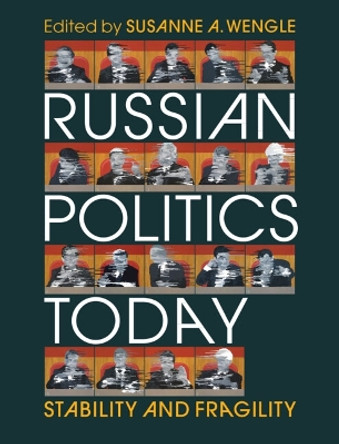Description
Wengle argues that we need to focus on the political actors who employed and favored particular agrotechnologies to provide "the good life" for citizens. Each of the large-scale rural reforms was rooted as much in political ambitions as in the need to increase crop and meat yields. Attempts to create the conditions of abundance relied heavily on top-down programs that nearly always had unexpected, and occasionally devastating, outcomes.
Bringing together a narrative on governance, production, consumption, nature, and the ensuing vulnerabilities of the agri-food system, Wengle reveals the intended and unintended consequences of Russian agricultural policies since 1917. Ultimately, Black Earth, White Bread is a call for attention to states' reliance on specific technologies to illuminate transformations in food systems everywhere.
About the Author
Susanne A. Wengle is the Nancy R. Dreux associate professor of political science at the University of Notre Dame and the author of Post-Soviet Power: State-Led Development and Russia's Marketization.
Reviews
"Who eats what? Susanne A. Wengle's important and gripping book recasts a century of Russian history as a series of revolutionary transformations of the country's food system. Answers to problems of food production and consumption are central pillars of political power and legitimacy for communist and post-communist regimes alike."-Henry Thomson, Arizona State University
"This eminently readable book, based on fascinating research, serves as an urgent reminder that techno-scientific projects in agriculture have deep histories and variegated geographies, and thus are hardly an invention of Silicon Valley start-up culture."-Julie Guthman, University of California, Santa Cruz
"A comprehensive and very refreshing technopolitical history of Russia's agrifood system. Wengle's nuanced account of Russia's remarkable rise from a Soviet-era food importer to a rising global powerhouse has resulted in a timely book-a tour de force that is nonetheless narrated in an extremely concise and lively way."-Oane Visser, International Institute for Social Studies, Erasmus University Rotterdam
"Challenges you to think beyond the confines of your respective specialty and consider big themes in agricultural history and policy. . . . Wengle should be commended for her lucid prose and sharp analysis, as well as the inclusion of several maps created by the author herself."-H-Net Reviews
"Offers a novel approach to the transformations of Soviet and post-Soviet agriculture, emphasizing the connections between the state, production, and technology, as well as consumers and nature, the latter two often neglected in political science."-Foreign Affairs
Book Information
ISBN 9780299335441
Author Susanne A. Wengle
Format Paperback
Page Count 296
Imprint University of Wisconsin Press
Publisher University of Wisconsin Press
Weight(grams) 454g
Dimensions(mm) 229mm * 152mm * 25mm




